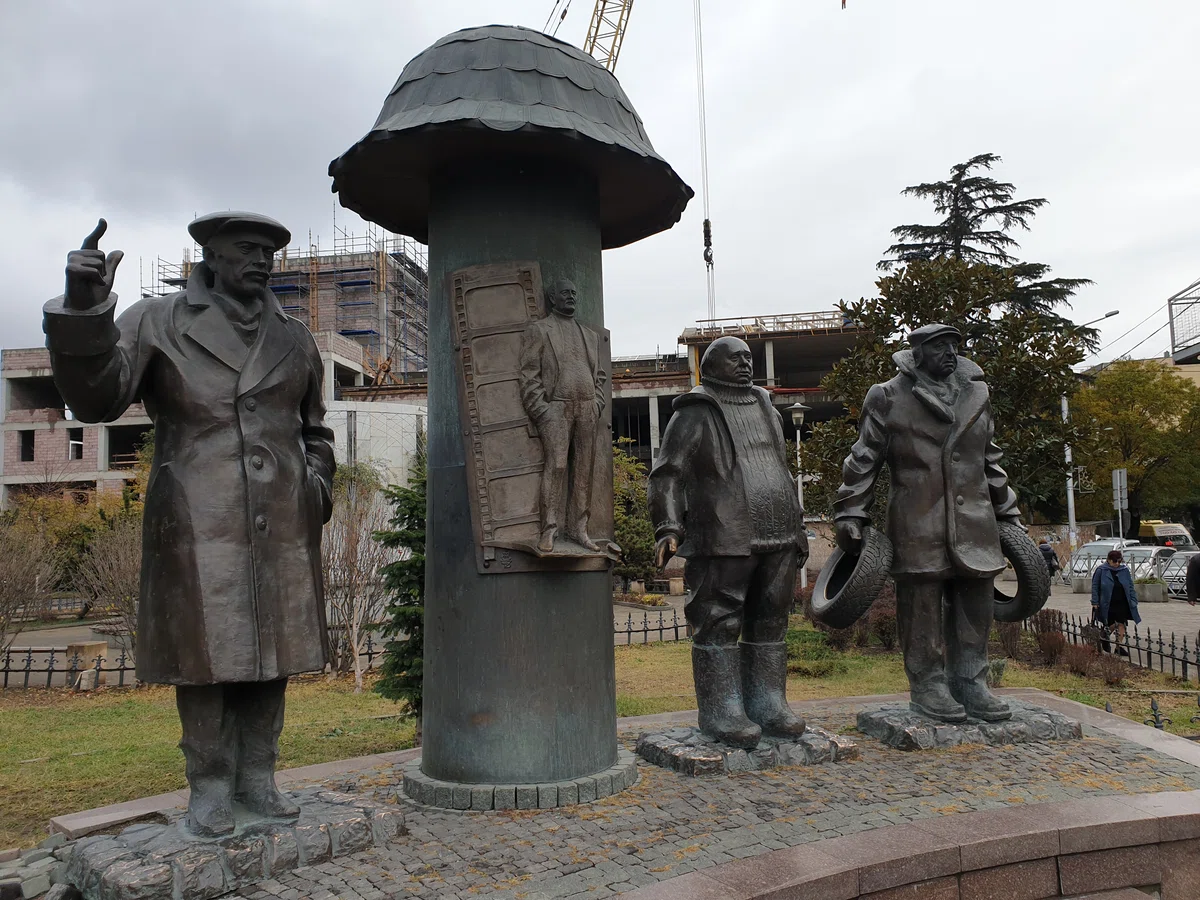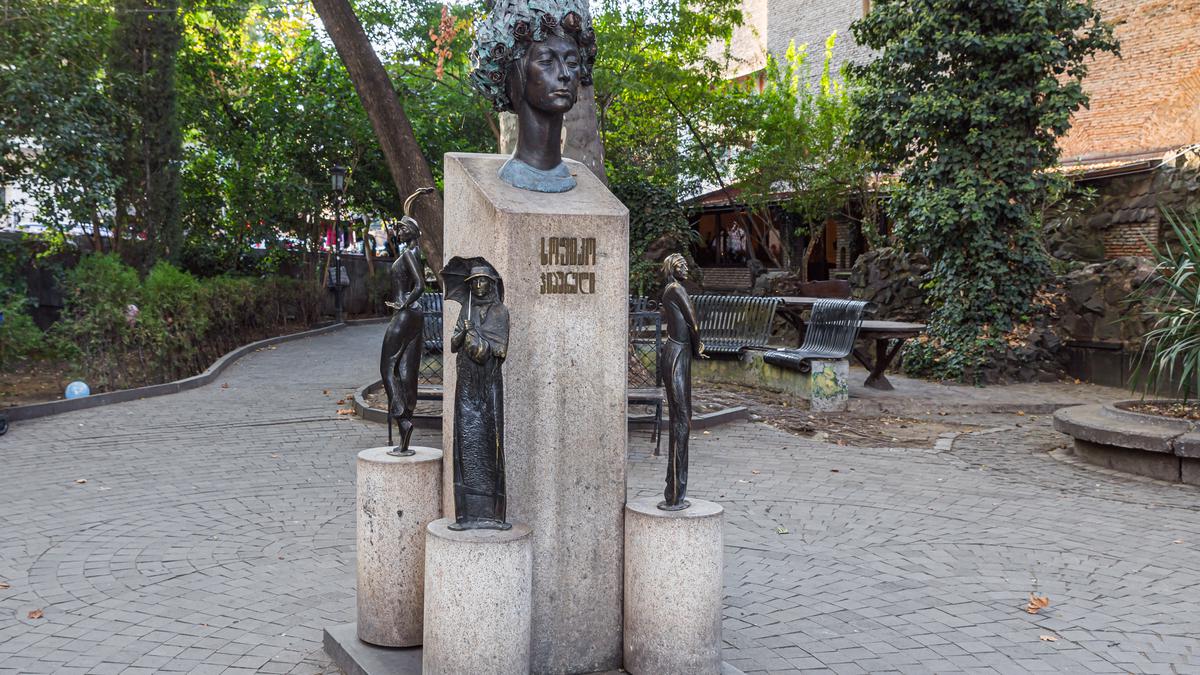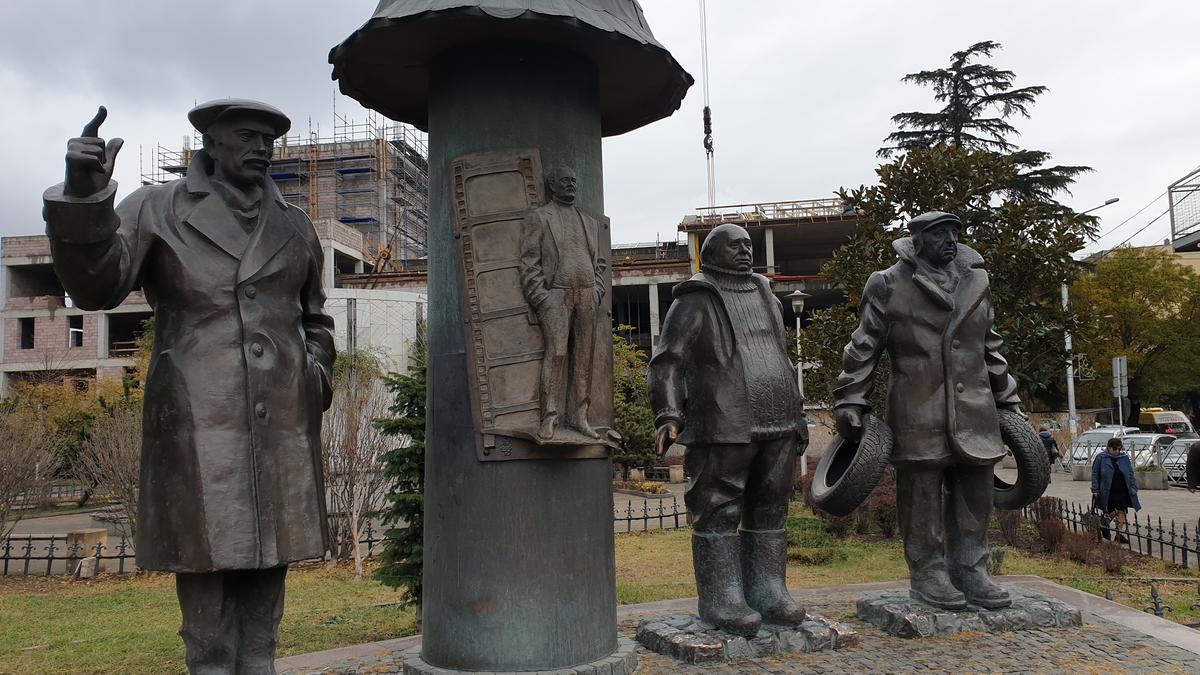
The birth of Georgian cinema. Georgia-Film Studio - favorite Georgian films of the Soviet period
Cinema of Georgia and its changes over time. The development of cinema began in 1921, and in the 30s they already created cartoons. The Georgia-Film studio appeared in 1953 and a whole epoch is connected with it. And now in the 21st century, Georgian films are very popular because they are made by kind and attentive people.
All about Georgian cinema ⬇️
The Georgian people have a subtle understanding of life. This is especially evident in art, the main genre of which can be called a parable.
Georgian cinema very sincere. Authors with warm humor and light irony tell us sad or funny stories from life. These films are distinguished by the Caucasian national flavor, their characters are wise, open, appreciating the joy of communication people. They are remembered by the viewer for the strength of character, pride and independence inherent in the Caucasian peoples.
Italian director Federico Fellini said:
"The Georgian film is an absolutely unique phenomenon, bright, very wise, sincere. There is everything that can make me cry, and I have to say that this is not an easy thing."
The official date of birth of Georgian cinema is considered to be 1912 — the year of birth of "Akaki Tsereteli's Journey to Racha-Lechkhumi", the first full-length film essay shot by Vasily Amashukeli.
The first feature film is "Kristine", 1916, directed by Alexander Tsutsunava.
Cinematography of Georgia of the Soviet period
Active development of cinematography The country has been operating since 1921, when a cinema section was created under the People's Commissariat of the Georgian Republic. Then, in 1923-1938, the trust "Goskinprom of Georgia" or the Tiflis Film Studio was formed. Here, in the 30s, they began to create cartoons.
In 1938-1953, the Tbilisi Film Studio worked, the only one in the USSR, which produced 2-4 films annually from 1948 to 1952.

Georgia-Film
The Georgia-Film studio appeared in 1953 and a whole epoch is connected with it. More than a thousand wonderful films have been shot here, of which about a hundred have deservedly received various prizes and awards at international film festivals. For example, T. Abuladze's film "Repentance" in 1987 received the Grand Prix of the Cannes Film Festival.
Despite the strict censorship that existed in Soviet times, Georgian cinematographers were able to create original, original films that go beyond the traditional socialist realism. They are metaphorical, they have a national flavor, sympathy for people and mild humor.
One of the first bright films of the Soviet period was "Lurdja Magdana", shot in 1955 by Tengiz Abuladze and Rezo Chkheidze. The following year, the film received an Honorary Diploma at the Edinburgh International Film Festival. And at the Cannes Film Festival, she got into the nomination of the short film competition as "The Best film with a fictional plot".
In 1964, director Rezo Chkheidze made the film "The Soldier's Father", which became a cult throughout the former USSR. This is a true story about an elderly peasant, a true Georgian, who goes to the front to look for his wounded son and remains on the front line. He takes care of young soldiers in a fatherly way, helps them in difficult soldier's everyday life. The film did not leave anyone indifferent, because the plot was taken from real life, without any fiction. The film has received several prizes and awards.
In the same period, filmmaker Otar Ioseliani creates. His first short film "April" was released in 1962. The original author's style manifested itself in his first full-length film "Listopad" (1966), which received two prizes at once in Cannes.
Such success of cinematography in Georgia was one of the reasons for the creation of the Faculty of Cinema and Television at the Tbilisi Theater Institute (1972). Subsequently, in 1992, the institute became known as the State Institute of Theater and Cinema. Its graduates have created wonderful films. Lyrical comedies and short films of that time won special love of the audience, among them: "Melodies of the Verian Quarter", "Cranks", "The Fastest in the World" and other wonderful films.
The heyday of Georgian cinema came in the 80s. About 60 films of various genres were produced annually. A huge contribution to the development of Georgian cinematography of that period was made by Gia Kanchelia, who created music for a huge number of films, and script writer Rezo Gabriadze.
In the late 1980s and early 1990s, the state stopped financial support for cinematography. The films of these years reflect the chaos, fear and despair that reigned in the country. Among them: "No, friend!" by G. Mgeladze, "Someone Else's House" by R. Glurdzhidze, "Night Dance" by Aleko Tsabadze and others.
After 1993, independent film companies and private studios were created, which independently choose the themes and scenarios of future films. The national film style, the content of films, and the actors' acting are gradually changing.

Georgian cinema of the 21st century
In 2001, the National Center of Georgian Cinematography was established. The main goal of the Cinema Center is the development of Georgian cinema, providing state support.
Since 2003, the Center has been conducting a competitive selection of scripts and partially finances the filming of films. The main requirement is compliance with the category "national film".
The Center spends about 1.7 million annually on financial support of film production. The National Film Center also represents the country at international film festivals and film markets.
Among the most interesting and vivid films of the modern period are: "The Other Shore", directed by G. Ovashvili, 2009;
"I can't live without you" by Levan Tutberidze, 2010;
"Long Bright Days" by Nana Ekvtimishvili, 2013.
The film Z. Urushadze's "Tangerines" (2013) was nominated for an Oscar and a Golden Globe. At the Warsaw Film Festival, he received the award "For Best Director".
The drama directed by Levan Zakareishvili "Tbilisi-Tbilisi", filmed in 2005, received the Nika Film Award in 2006; it was also awarded with other international prizes.
Currently, public and private television companies are engaged in film production. For example, the Imedi TV company, founded by Badri Patarkatsishvili in 2003, produced six series simultaneously.
The private TV company Rustavi 2 financed the filming of the documentary series "Modern History of Georgia", the duration of each episode of which is 30-40 minutes.
Georgian cinema continues to delight and find fans everywhere, because Georgians make films in such a way that viewers from different countries understand it. And after watching some movies, many people will definitely want to go to Georgia.
You can easily find more interesting facts about Georgian culture on the pages of the Madloba catalog. We have collected the latest news, fascinating reviews and useful articles, studying which you will quickly and easily get acquainted with the amazing people of Georgia and its history.












36 comments
Log in to leave a comment
Придётся мне выбрать вечерок для просмотра грузинского фильма. Спасибо автору статьи за такую полезную информацию, люблю узнавать для себя что-то новое. Грузия не перестаёт меня удивлять.